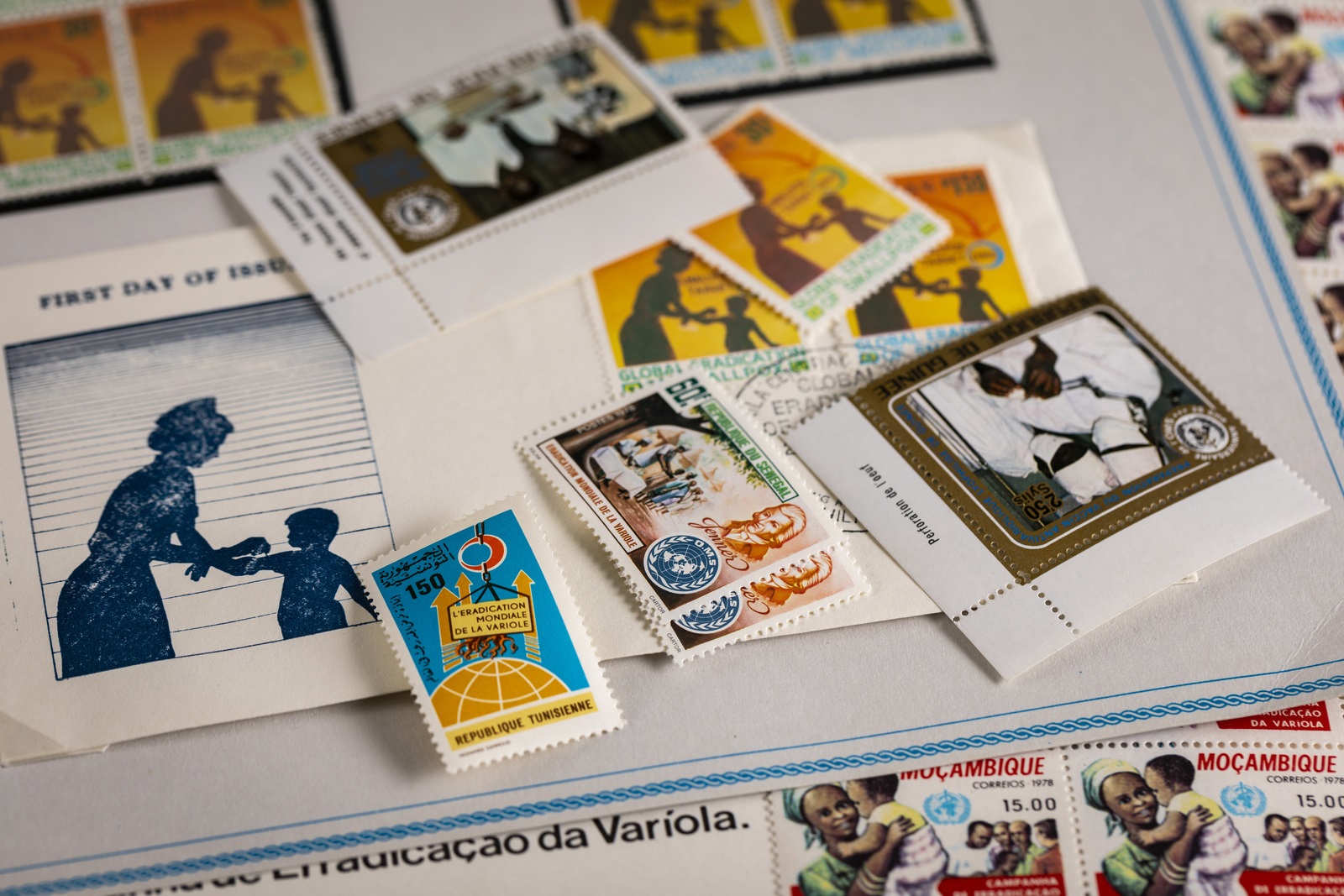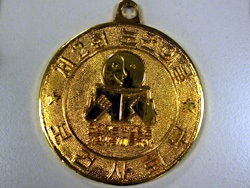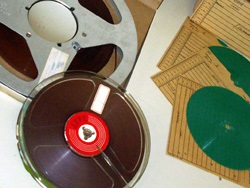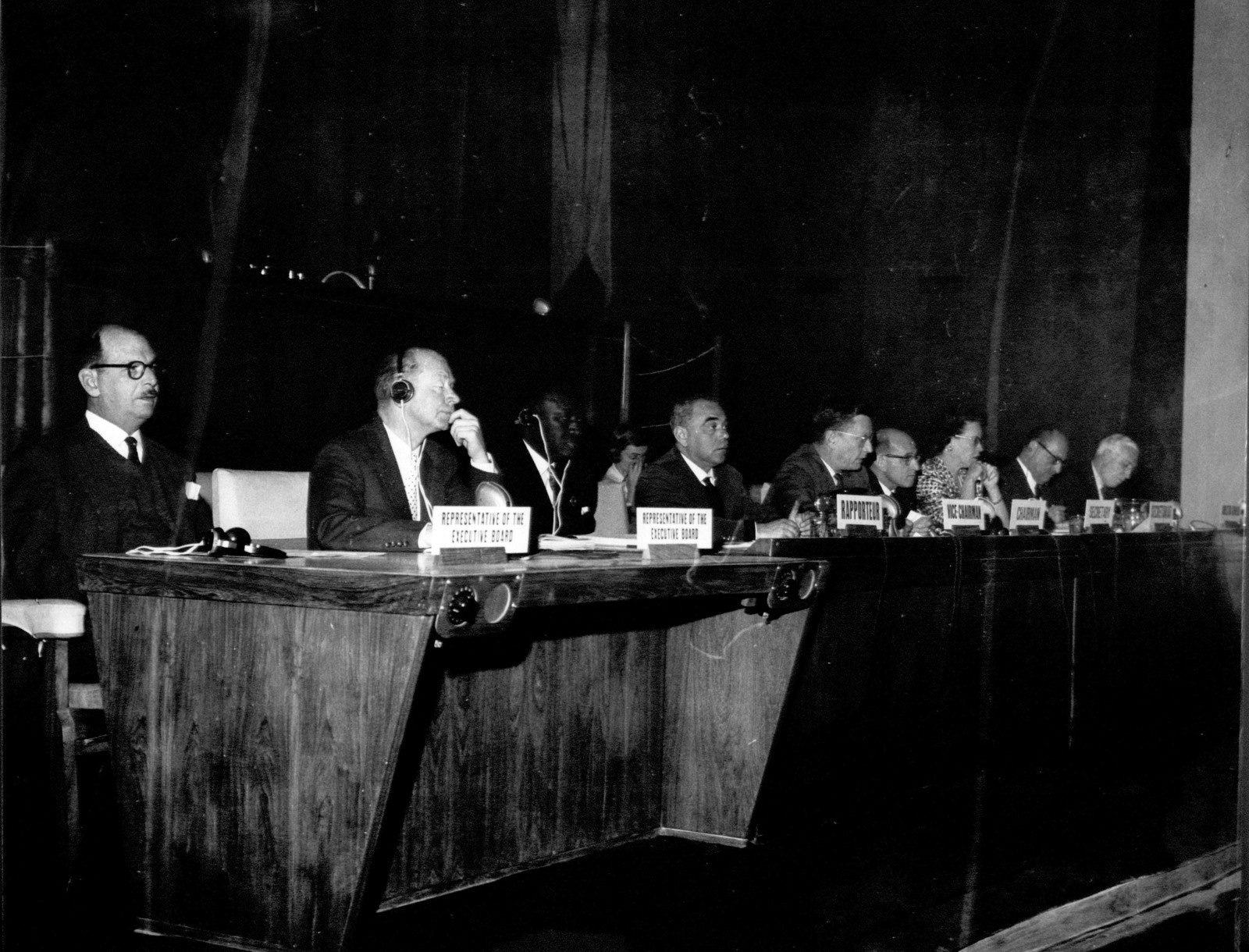
Special collections
The WHO archives have the privilege of holding special collections, besides the traditional paper documents. They include five main collections, which are described under the following links.
Stamp collection
WHO has always had close links with stamp collecting. Since it was set up, numerous stamps have been issued in order to put messages across to the population. WHO has always used postage stamps as a means of information, of raising awareness, of prevention and of commemoration.
The collection as a whole paints a picture of the significant events in WHO history. Here are a few examples of the subjects covered by this collection:
- World Refugee year 1960, stamp issue in 70 countries
- 1962 malaria control campaign carried out in numerous countries throughout the world
- 20th anniversary of WHO in 1968
To supplement the stamps, the collection also has period documents such as press cuttings, which make it possible to place the collection in a specific context.

Numismatic collection
WHO has received and issued medals and coins throughout its history. They are issued to reward good deeds and to commemorate significant achievements. The collection contains a selection of these items which record the different landmark occasions commemorated by WHO. A few examples are presented below.
- Medals of the Permanent Committee of the Office International d'Hygiène Publique (OIHP)
- Medals awarded to WHO: "Bernadotte" awarded by the League of Red Cross Societies in 1950, and the "Adolfo Lutz", a médal awarded by Brazil in 1966
- Commemorative medals issued by WHO to commemorate the inauguration of the new Headquarters building in 1966, the 25th anniversary of WHO in 1973 and the eradication of smallpox in 1980
- Medals awarded by WHO: Léon Bernard Foundation Prize, Dr Parisod Foundation medal, Dr Shousha Foundation Prize

Sound collection
The archives keep sound recordings of some major events in the history of WHO:
- International Health Conference, New York, 1946, official constitution of the World Health Organization
- Commemorative session on the occasion of the 10th anniversary of WHO in 1958
- visit to WHO Headquarters by the United States Senator Hubert Horatio Humphrey in 1958
- Codex Alimentarius Commission in 1964, one year after its creation at the initiative of the United Nations Food and Agriculture Organization (FAO) and WHO
- meetings of the Committee on the creation of a cancer research institute, Lyon, early 1965, then the first meetings after its creation (end of 1965-early 1966)

Oral history
In 2005, a project was designed to gather the testimonies of distinguished former staff members in order to build up WHO's collective memory and make these historic resources available to researchers.
Several collaborators were interviewed, although only a few of the transcripts are available.
All rights pertaining to the sound documents and the written transcriptions are reserved.
- Siegel, Milton (USA)
- Dorolle, Pierre Marie (France)
- Yile, Hyde (USA)
- Zarb, Antoine Henri (France)
The main goals of the project are:
- to document historic experience which tends to be overlooked by written sources
- to show past experience and views in a different light
- to bring people back into the present, while preserving their personality and the sound of their voice
- to gather spontaneous and informal impressions.
The result of these interviews includes different elements, which are then included in the WHO archives:
- a biography of the interviewee
- the sound document from the interview
- a written transcript of the interview
- a few photographs of the person

Former staff history
Archives gathers information from former WHO staff members who have played a key role in WHO. This historical collection, which started in 2011, makes available to the public autobiographies and other material of former WHO staff members.

